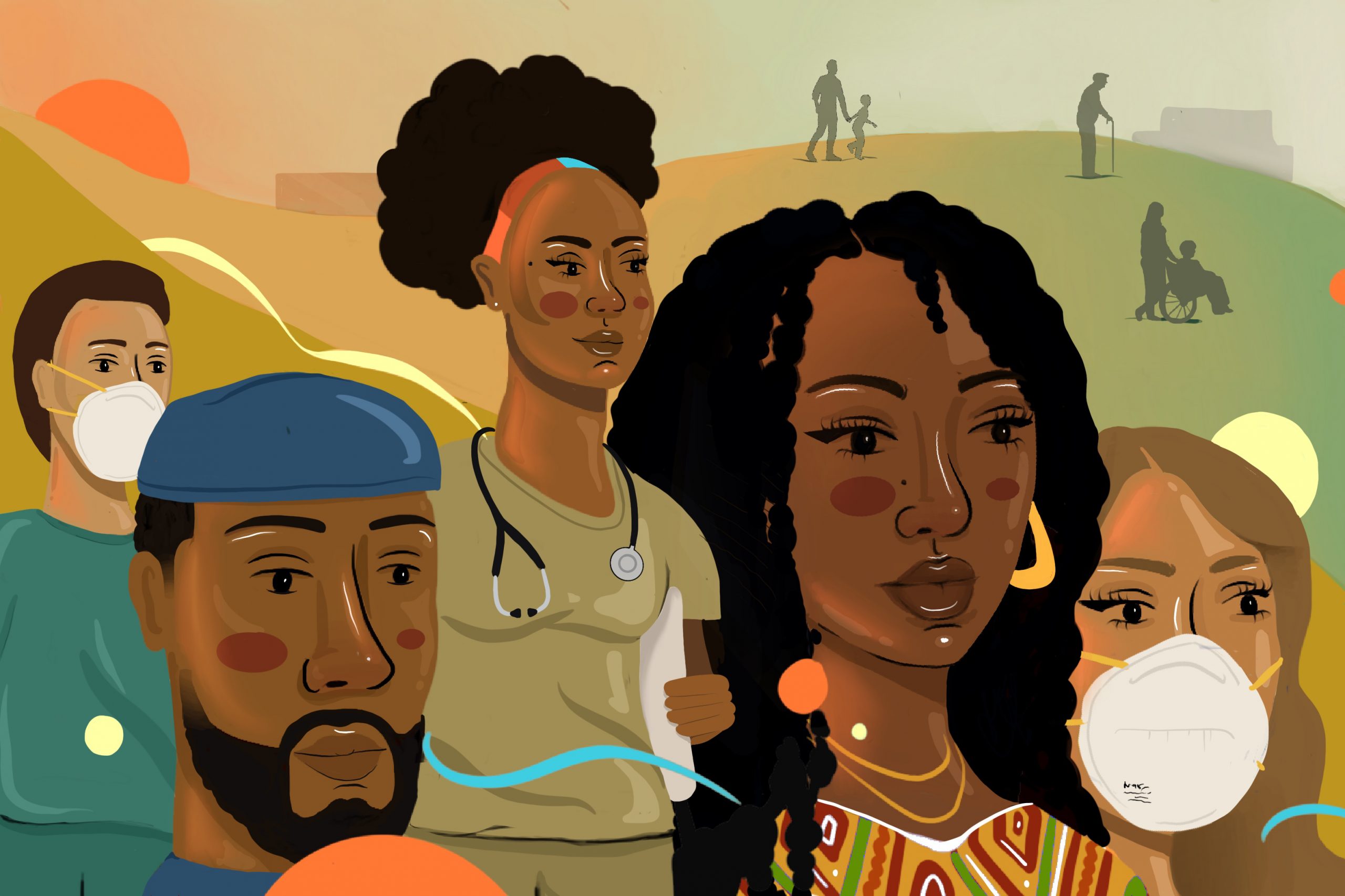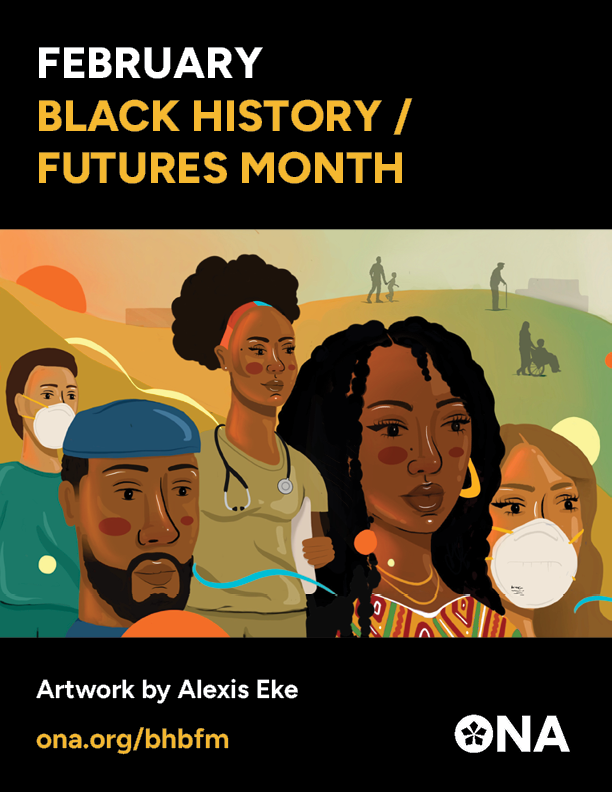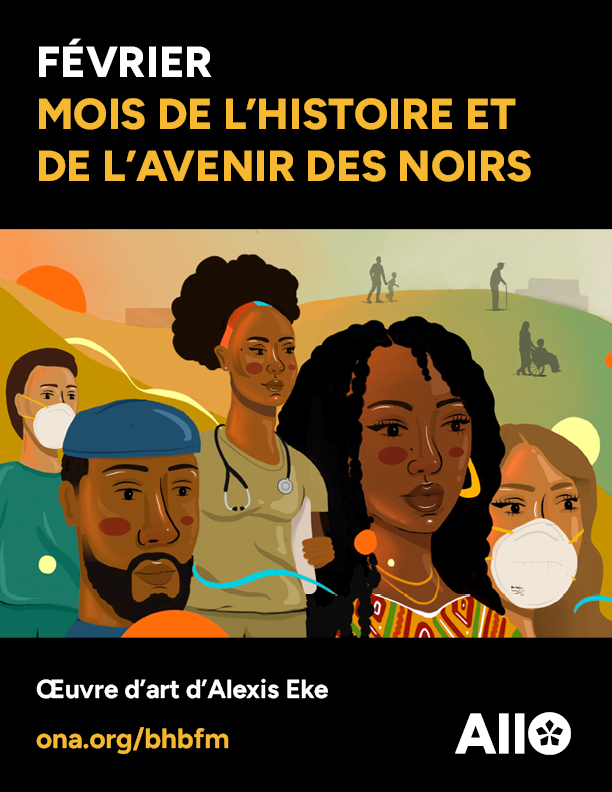Black History/Black Futures Month
January 11, 2024
Each February, ONA celebrates Black History/Black Futures Month and honours Black Canadians whose achievements have shaped who we are today.
In December 1995, the Parliament of Canada officially recognized February as Black History Month, following a motion introduced by the first Black Canadian woman elected to Parliament, the Honourable Jean Augustine. The motion was carried unanimously by the House of Commons.
In February 2008, Senator Donald Oliver, the first Black man appointed to the Senate, introduced the Motion to Recognize Contributions of Black Canadians and February as Black History Month. The motion received unanimous approval and was adopted on March 4, 2008. Canada’s theme for Black History Month 2024 is Black Excellence: A Heritage to Celebrate; a Future to Build.
In 2018, the ONA Board of Directors voted unanimously to designate Black History Month as one of our key human rights and equity observances. Two years ago, ONA launched an ambitious four-year action plan to help guide our union in addressing the ongoing racism and oppression that exists for so many of our members and staff, and within our communities. The Anti-Racism and Anti-Oppression (ARAO) Action Plan is the direct result of a call to action from our members, leaders and staff with lived experiences of intersectional forms of racism, including anti-Black racism, anti-Indigenous racism, discrimination and acts of exclusion.
Black nurses have played a vital role in the history of nursing in Canada. During World War 1, Black women – who were denied the chance to participate in Canada’s war efforts – formed the Black Cross Nurses (modeled on the Red Cross) to aid wounded soldiers and work in the Black community, providing health care, first aid, nutrition and child care.
Toronto-born, US-educated nurse Bernice Redmon broke the barrier nation-wide when she worked for the Nova Scotia Department of Public Health in Sydney in 1945. Redmon had been refused entry to Canadian nursing schools and instead earned her nursing diploma in Virginia. She went on to become the first Black woman appointed to the Victorian Order of Nurses in Canada.
As a result of the pressure put on the provincial Ministry of Health and nursing schools by such groups as the Hour-A-Day Study Club of Windsor and the Toronto Negro Veterans Association, Black women were finally admitted for training and gradually employed in hospitals across Ontario by the late 1940s and early 1950s.
In 1948, Ruth Bailey and Gwennyth Barton became the first African Canadians to earn their diplomas from a Canadian school of nursing.
This year marks the end of the International Decade for People of African Descent, which was proclaimed by the United Nations General Assembly and ran from 2015-2024. Read Canada’s statement below:
“Together, we are building a fairer Canada, free from hate and discrimination. Canada recognizes the United Nations’ International Decade for People of African Descent and upholds the themes of recognition, justice, and development. That is why the federal government is launching its new Anti-Racism Strategy and developing Canada’s first Action Plan on Combatting Hate. To support equal economic, social, cultural, and political opportunity, the Government of Canada has launched several initiatives, including the Black Entrepreneurship Program, which is helping Black entrepreneurs grow their businesses and succeed now and into the future; the Black Canadian Communities Initiative, to celebrate, share knowledge, and invest in vibrant Black Canadian communities; and the Black-led Philanthropic Endowment Fund, which will provide a sustainable source of funding for Black-led, Black-focused, and Black-serving non-profit organizations and registered charities across the country.”
 Our Black History/Black Futures Month artwork was created by Alexis Eke (https://www.alexiseke.com/.)
Our Black History/Black Futures Month artwork was created by Alexis Eke (https://www.alexiseke.com/.)
In this illustration, my aim is to unify the themes of Black Resistance, nursing and the strong female presence within the nursing community. These are a wide spectrum of topics, and I incorporated the many gradients of colour in the background to highlight that…Warm, vibrant colours and shapes are used repeatedly throughout this piece to visually present the strength, perseverance and hope nurses have ignited in their communities and that many nurses possess within themselves.
Alexis Eke, artist
Events
We encourage ONA members, family, and friends to join us in recognizing Black History/Black Futures Month by participating in events in your community.
- Black History Month at the AGO
- Recontextualizing Black History Through Art
- Canvas for Change: Black Youth Art Celebration
- Amherstburg Freedom Museum Exhibits
- Ottawa Black Creatives Hub Performing Arts Showcase
- KUUMBA Events
- Black Defenders of Upper Canada Tour at Fort York – throughout February, free admission
- Sharing Stories at Scarborough Museum – throughout February, free admission
- Printing Mary Ann Shadd Cary's newspaper at Mackenzie House! – throughout February, free admission
- Talking Back at Colborne Lodge – throughout February, $8 +HST admission
- Why? by Matthew Burnett – February 10, 7pm-9pm, $20 admission
- Family Day Drop In Stories and Poetry at Montgomery's Inn – February 17, 1pm-3pm, free admission
- Good Vibes Family Day Weekend at Todmorden Mills – February 17-19, from 11am-4pm, free admission
- Book Reading with Erica London at Spadina Museum – February 19, 11am-4pm, free admission
- Family Day Activities at Fort York – February 19, 11am-4pm, free admission
- In Praise of Black Culture at Montgomery’s Inn – February 24, 7pm-9pm, $15 +HST admission
Have photos you'd like to share with the ONA community? Submit them via email to digital@ona.org, or tag us on social media.
Materials
Learn More
Arts and Culture
History
Read:
- Black History Month: Canadian Health Heroes
- 25 books about being Black in Canada – Historical and present looks at Black experiences in Canada.
- Blacks in Canadian Human Rights and Equity History
- Toronto Public Library Black Lives Matter Reading List
Watch:
- Black Life: Untold Stories – CBC Gem – An eight-part documentary series that reframes the rich and complex histories of Black experiences in Canada.
- February is Black History Month – Canadian Historical Figures
- The Last Best West
- Heritage Minutes: Underground Railroad
Listen:
- Pod Save the People – Keep the Fight – This week DeRay, Brittany, Sam, and Clint discuss the murder of George Floyd and the protests around the nation. Then, DeRay sits down with Justine Barron and Amelia McDonell-Parry, who have been researching the death and cover-up of Freddie Gray, which just hit a five-year anniversary.
- Wait, There’s More – The Erasure of Canada’s History of Anti-Black Racism – Any time there’s a big story about racism in the U.S., there’s a tendency for us in Canada to talk about our problems as distinct from the American ones; as if we’re much more evolved and things aren’t as bad here when it comes to racism. Today, we’re talking about Canada’s deep roots of anti-Black racism, and why that history is often overlooked.
- Code Switch – Fire Still burning – If 2020 has taught us anything, it’s that history informs every aspect of our present. So today we’re bringing you an episode of NPR’s history podcast, Throughline. It gets into some of the most urgent lessons we can learn from James Baldwin, whose life and writing illuminate so much about what it would really mean for the United States to reckon with its race problem.
Health
Read:
- Mental health within Black communities in Canada: profiles of advocates (and bonus resources!)
- Shining a Light on Mental Health in Black Communities
- Dr. Karen Flynn has a variety of articles published about the history of Black Canadian nurses. We’ve listed a few below for you to check out:
- Recognizing History of Black Nurses, a First Step to Addressing Racism and Discrimination in Nursing
- Black History Month: Six members of U of T Medicine’s community talk about their work, representation
- Hidden figures of nursing: The historical contributions of Black nurses and a narrative for those who are unnamed, undocumented and underrepresented.
- ‘I’ve walked in the room and they’ve asked, “Where’s the real doctor?”‘ – CBC News
Listen:
Watch:
Anti-Racism and Anti-Oppression
ONA’s Anti-Racism Member Advisory Team and ONA’s Anti-Racism and Anti-Oppression Working Group launched a series of resources to continue to bring awareness to current issues impacting those who are Indigenous, Black, Racialized and members of historically marginalized communities.
Visit our Anti-Racism and Anti-Oppression page for the latest news and resources, including our Anti-Racism and Anti-Oppression Action Plan.
For further information, questions or comments, email arao@ona.org.
Pour en savoir plus, ou si vous avez des questions ou des commentaires, envoyez un courriel à arao@ona.org.



